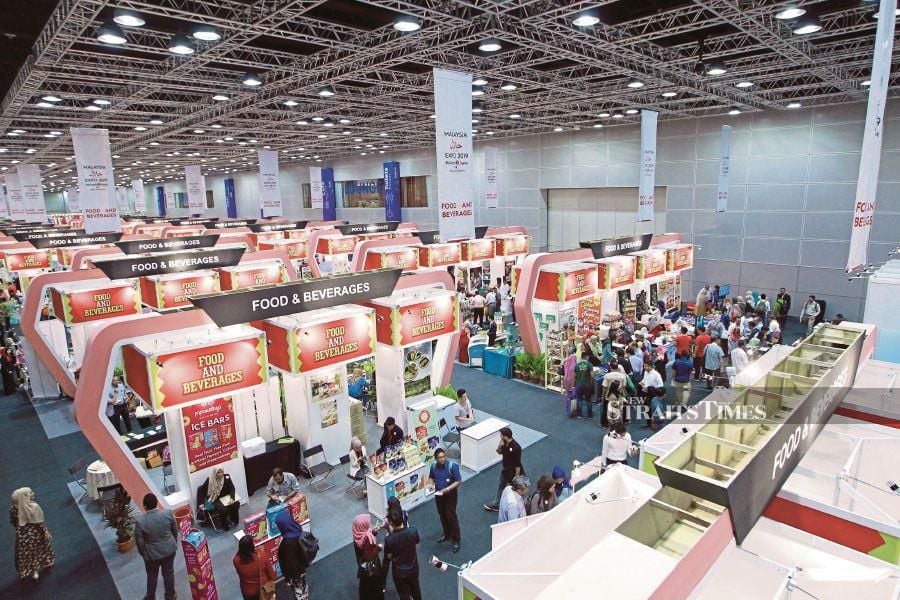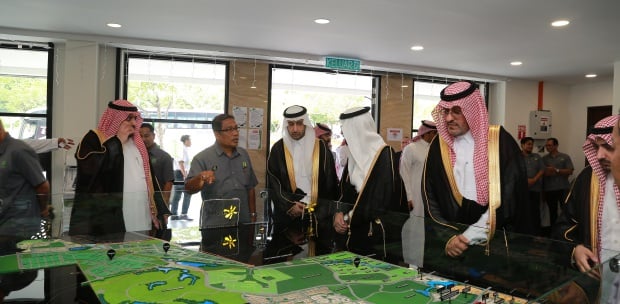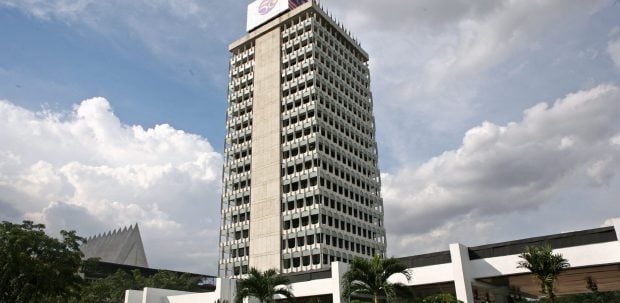HALAL parks were created as an integral part of the nation's drive towards becoming a Global Halal Hub. There are 14 strategic HALMAS (Halal Malaysia) industrial parks located across the country complying with Halal Industry Development Corporation Berhad's (HDC) requirements.
Malaysia has a fundamental advantage no other halal-interested country can lay claim to, specifically our halal certification backed by a stringent certification and audit process complying to SIRIM's MS 1900 Syariah-Based Quality Management System which is globally recognised as the gold standard.
This certification provides unquestioned trust and peace of mind to consumers. Companies in every halal park have ease of access to this certification and facilitation in complying to stipulated requirements.
A spectrum of tax incentives available to halal parks testifies to strong government support and the direct attention of HDC adds to the attractiveness of halal parks.
Given the foundation laid for incentivising foreign investors to conduct halal-related operations, multinationals like Ajinomoto, Cargill, Kellogg, Kewpie, Coca Cola and Dutch Lady have a presence in halal parks.
But there are still several opportunities for making halal parks even more attractive as an investment destination. Here are four important areas:
Firstly, we can establish dedicated industry clusters where multinational corporations can collaborate with local enterprises, acting as anchors around which the local supporting agencies can cluster to create integrated halal supply chains from raw materials to end products.
This platform not only enhances collaboration, but also strengthens efficiency and innovativeness. The concept of industry-dedicated clusters is not new.
The TSMC, a global semiconductor leader, has its roots in Taiwan's Hsinchu Science Park's (HSP) semiconductor cluster. In the Malaysian context Techpark@Enstek — intended as a biotechnology park –— can motivate its biotechnology tenants to work concertedly with SMEs to establish one or two biotech focused clusters.
Secondly, the International Trade and Industry Ministry (Miti) and HDC can work together to bring to life the Triple Helix model to stimulate and embed continuous innovation. Triple Helix describes the academia-government-industry partnership to trigger innovation and hasten commercialisation.
Silicon Valley is founded on this model. HSP and Korea's Daedeok Innopolis are notable examples closer to home. In the latter, the manifestation of Triple Helix is amply evidenced by the presence of 26 government research institutes, 7 universities and over 1,900 companies. Halal parks can certainly emulate these successes.
It is heartening to note that HDC has signed a memorandum of understanding with the Malaysian Global Innovation and Creativity Centre (MaGIC) for technology transfer leading to commercialisation during the recent launch of the Malaysian Research Accelerator for Technology and Innovation (MRANTI).
Halal products have substantial room for range and category expansion especially in pharmaceuticals, nutraceuticals and even traditional ingredients that are not currently available in halal form. Here, research and development is the key. This can be enabled through adopting the Triple Helix model.
For this purpose, governmental intervention is instrumental to bring together research institutes, local universities and the industry. Just as important, this model will induce wider collaboration especially through cross-border participation of foreign research institutes and universities with the requisite technical knowhow via government-to-government arrangements.
Thirdly, our government has a crucial role in giving stronger institutional oversight and a "whole of country" approach that specifically emphasises convergence of efforts and investments to the establishment of dedicated halal industry clusters for national gain.
Halal parks are located in states across the country; each state competes for investments into its halal parks. This competition must not detract from or affect efforts at achieving the national aspiration of making the country a global halal hub. Uncoordinated efforts will compromise efforts to realise our national aspiration and impair the speed of realising economic gains.
Hence, stronger oversight and authoritative direction at the national level is needed to coordinate and channel investments towards the "greater good" while endeavouring to delicately balance national and state interests.
This balancing will not be easy, fortitude and an ironclad political will is needed as will objectivity and absolute independence. In this regard, HDC is eminently qualified to play the role of independent oversight authority alongside federal investment bodies, all acting under the auspices of Miti.
Finally, we must bring companies operating in halal parks onto an electronic platform where they can uniquely showcase the diverse range of halal products and industries across all halal parks in Malaysia.
This electronic platform will provide halal parks companies access to a wider range of buyers and facilitate trading amongst themselves — linkage of upstream and downstream players will sow the seeds for building an integrated supply chain.
The platform will also link halal logistics operators to enhance access to a wider range of users and vice versa. Consequently, it provides the impetus for competition amongst logistics operators to further improve service levels and cost effectiveness.
The most notable aspect is that the platform can morph over time into a dedicated halal marketplace serving both businesses and, more significantly, consumers. The transactions can be bi-directional: one, bringing local halal products to international audiences; the other, support international companies to widen reach for their halal products. Collectively, they are pivotal for HDC to achieve its stated goal of internationalising halal.
Halal parks have significant underlying potential that is best realised as a collective whole and coordinated at the national level with an uncompromising focus on achieving the strategic intent of making Malaysia a global halal hub.
Perhaps we will see distinctive Malaysian halal brands of global repute emerging from our halal parks.
The writer is a Certified Public Accountant and former Managing Partner, Global Business Services, IBM Malaysia
The views expressed in this article are the author's own and do not necessarily reflect those of the New Straits Times





